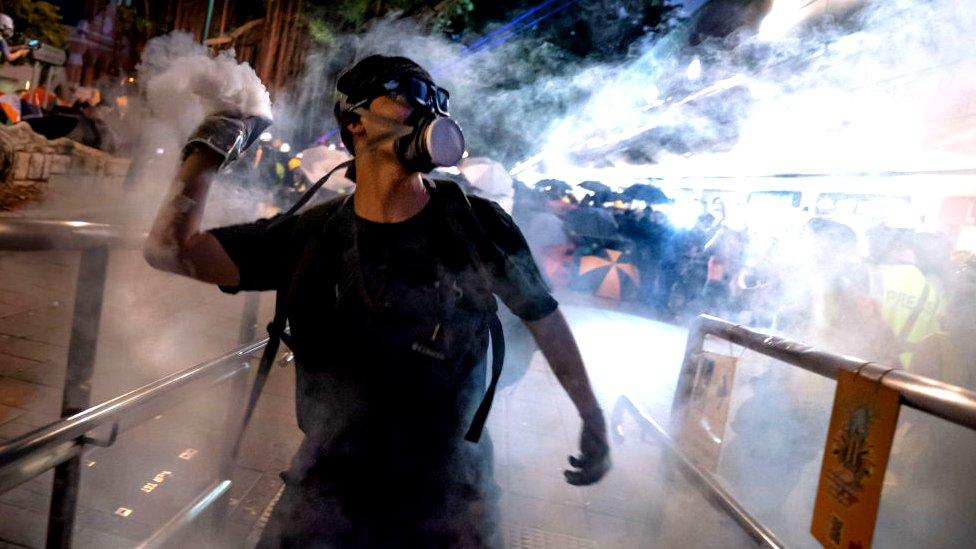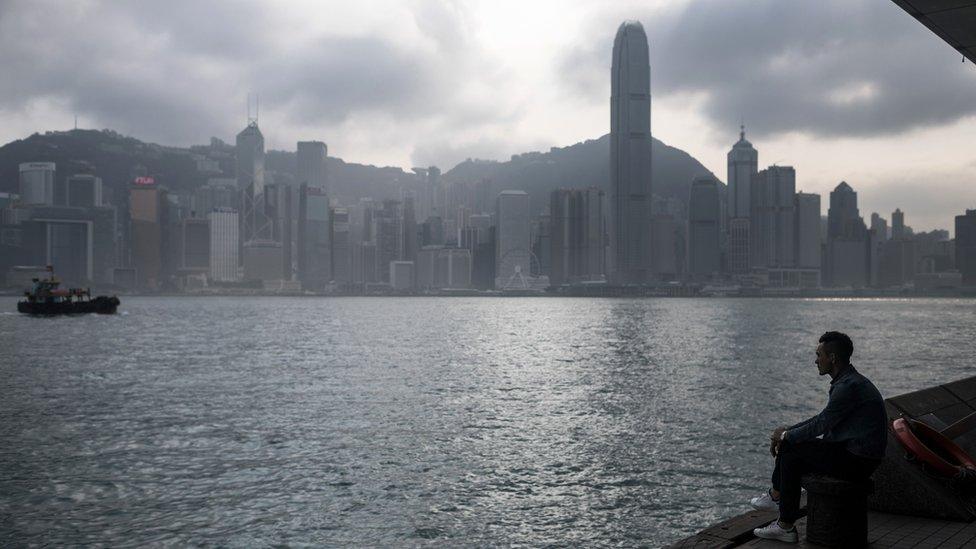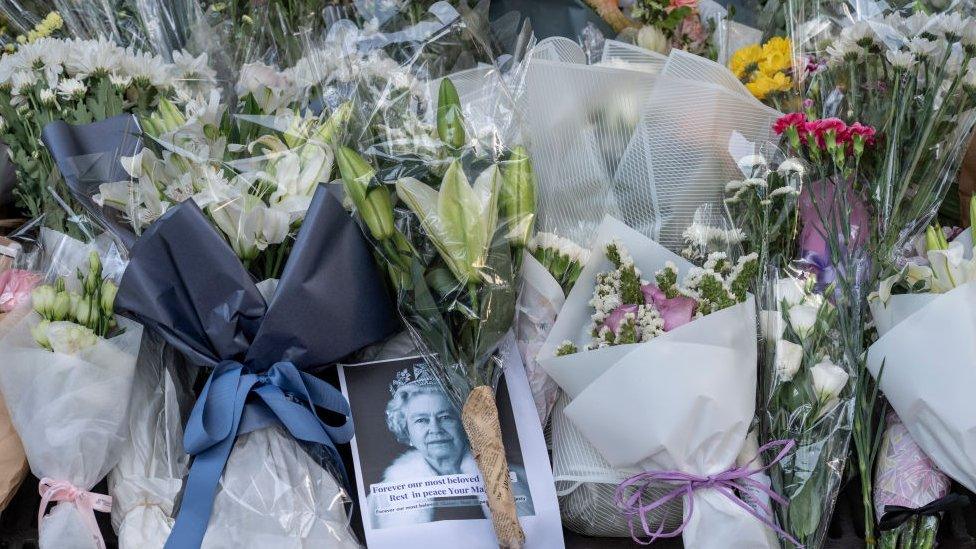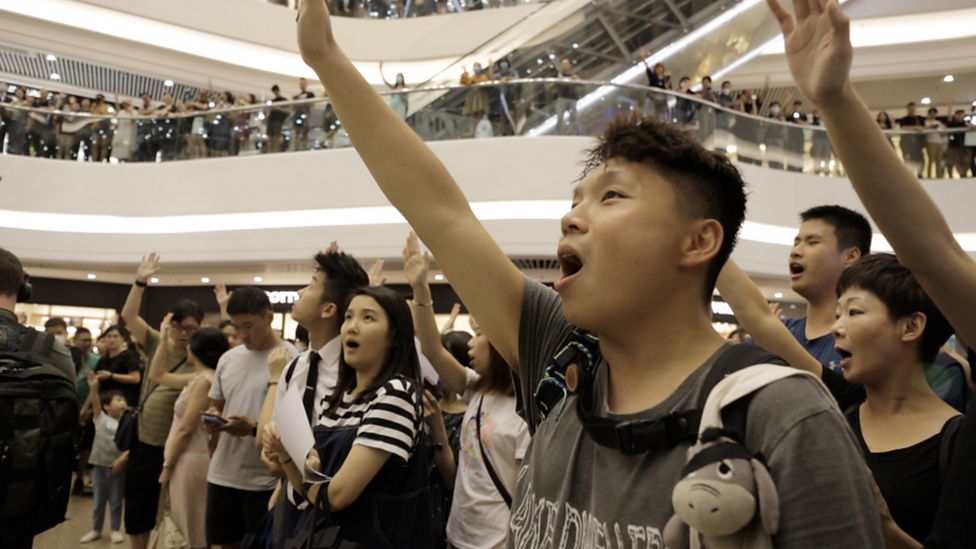Hong Kong calls for probe after rugby match protest song
- Published

The song became the unofficial anthem of the 2019 pro-democracy protests
Hong Kong officials have demanded an investigation after a rugby game where a protest song was played instead of China's national anthem.
The city said it "strongly deplores... the playing of a song associated with 'violent protests'".
The song, Glory to Hong Kong, is considered the unofficial anthem of the 2019 pro-democracy movement.
And it has become increasingly controversial under Beijing's tight grip over the city.
The song's lyrics refer to the "tears on our land", and mention "democracy and liberty".
Although Hong Kong officials did not name the song, videos of the scene from Sunday's match have since been shared widely online.
The song can be heard playing ahead of a match between Hong Kong and South Korea at the Asia Rugby Sevens, an annual regional tournament. The players don't appear to react to the song.
The organisers said the mistake was caused "by human error of a junior staff", and that the Hong Kong team coach had submitted the correct song, according to a government statement, external.
A government spokesperson said they had written to the Hong Kong Rugby Union on Sunday evening demanding that they "deal with this matter seriously [and to] launch a full and in-depth investigation".
It added that the Hong Kong team noticed the mistake and China's national anthem, March of the Volunteers, was played during the prize ceremony after Hong Kong won the final.
The Hong Kong Rugby Union on Monday expressed "extreme dissatisfaction" over the incident. It also said the organisers, Asia Rugby, have "expressed their sincere apologies and assured us it will not happen again".
Hong Kong now has a law against disrespecting the Chinese national anthem. It was enacted in 2020 after years of the Chinese anthem being booed at during football matches.
Glory to Hong Kong has not been banned in the city but earlier this year, a man who played it along with several songs outside the British consulate on his harmonica, was detained for carrying out an "act with seditious intent".
Hong Kong is a special administrative region of China and is supposed to be ruled under the "one country, two systems" principle that preserves freedoms in the city that the mainland does not have.
But China's influence has grown in recent years, especially in the wake of huge pro-democracy protests.
The tipping point was 2019 when Beijing proposed an extradition bill that would have allowed HongKongers to be tried in China. Anger over the bill erupted into some of the largest protests the city had ever seen.
China cracked down with a controversial National Security Law in 2020 that criminalised any act of secession, subversion, terrorism and collusion with foreign forces.
Beijing insists the law is necessary for stability but critics argue its loose definition makes it easier to stifle protest and free speech. Hundreds of protesters, activists and former opposition lawmakers have been arrested since the introduction of the law.

You might also be interested in
Glory to Hong Kong: Singing the city's new protest anthem
- Published1 July 2022

- Published20 September 2022

- Published14 September 2019
